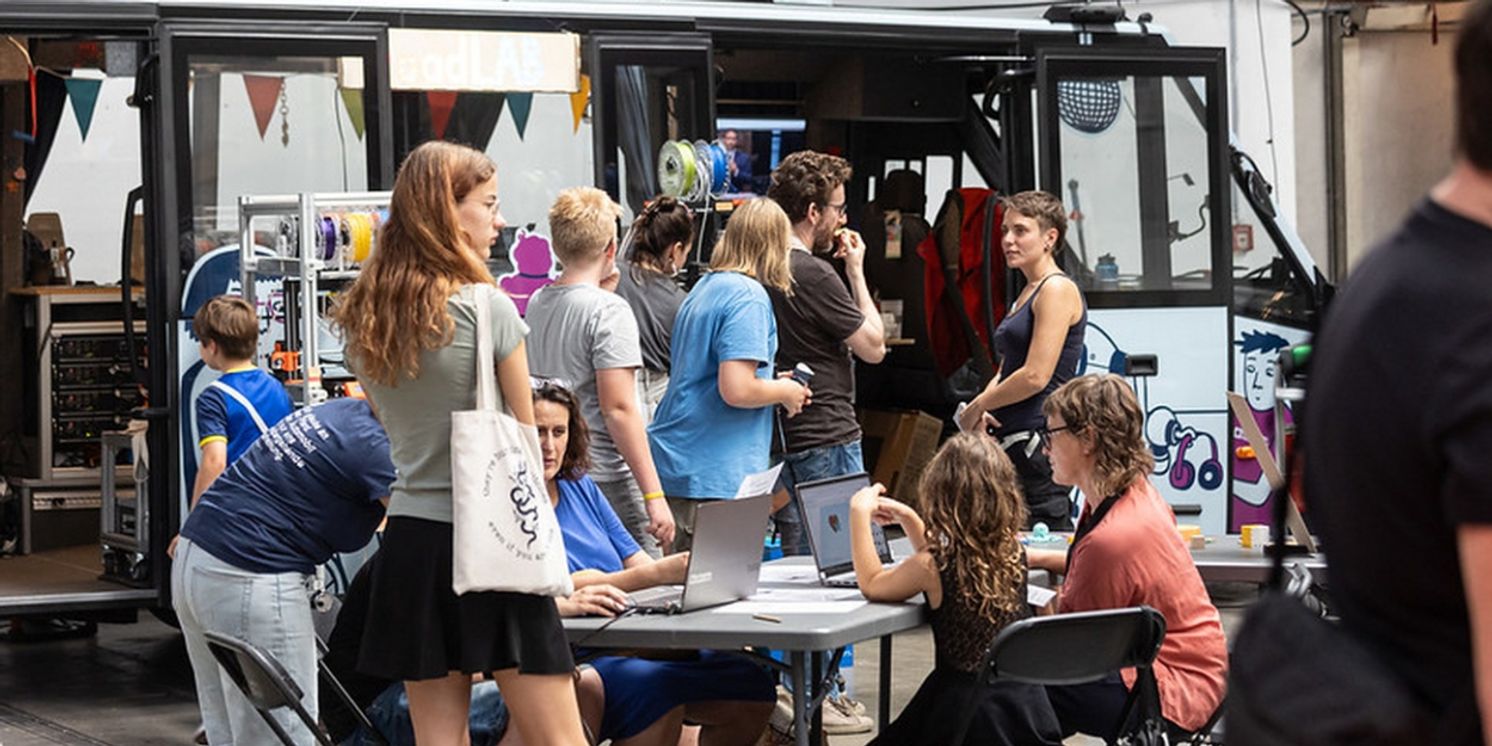More than 88,000 Visits to Ars Electronica Were Made in 2023
Ars Electronica returned from 6th – 10th September.

After three years on the green campus of Johannes Kepler University, Ars Electronica returned from 6th – 10th September to perform in the reinforced concrete gray halls and catacombs of POSTCITY as well as at 13 other locations in downtown Linz. 1,542 artists, scientists, developers, designers, and activists from 88 countries took part in the festival, which was again implemented as a “Green Event” this year. Plus 75 students from 43 countries who participated in the FOUNDING LAB conducted jointly with IDSA (Institute of Digital Sciences Austria). 338 partners and sponsors and a total of 434 employees made it possible to present 650 exhibits and hold 575 events. An effort that was well worth it. “Including the pre-opening walk, this year’s Ars Electronica recorded more than 88,000 visits,” says Gerfried Stocker, Artistic Director of Ars Electronica, about the enthusiastic response of the public. “It was a really great festival. A huge thank you to everyone who contributed to it.”
Digital revolution in POSTCITY
20 kilometers of power cables, 550 pieces of 10-meter extension cables and 550 pieces of 5-meter extension cables, 800 socket distributors, 400 screens, 75 projectors, 75 notebooks, 150 PCs and 100 Raspberry Pi, 60 exhibition wall modules, 430 tables and 2100 armchairs, hundreds of plants… The list of things needed by the festival team to stage the POSTCITY events was endless. Halls, ramps, catacombs and railway tracks became stages, forums, workshops, and laboratories where audiences could get into contact with pioneers of digital transformation, many of whom have been bustling around the POSTCITY over the past few days.
The Future in all of its facets
The entertaining and apt keynote of Wikipedia co-founder Jimmy Wales (US), for example, who revealed both the limits as well as the potential of generative AI systems and discussed the IDSA in a separate session with the FOUNDING LAB students.
Karen Hao (US), who made it clear with her presentation that we are about to usher in an era of AI colonialism in which the global north will (again) get all the benefits, while the global south will (continue to) only get economic exploitation and ecological disasters remain.
Fabian Scheidler (DE), who showed from the point of view of an artist, author, and journalist that technology always reflects economic and political power structures and that we therefore have to change our social structures in order to get a different—more inclusive and fairer—kind of technology.
The collective Rimini Protokoll (DE), invited by Johannes Kepler University, raised the questions in their play Uncanny Valley about how it will feel when our robotic twins are stronger, more intelligent, more understanding and more popular than us, the originals.
Filmmaker Richard Mosse (IE), who with his 20-meter long projection of Broken Spectre in the POSTCITY bunker traced the social and ecological drama that takes place day after day in the Pan-Amazon region.
Luc Gut (CH) and Rolf Hellat (CH), who enchanted the audience with their Oszilot sound installation made of armchairs equipped with sensors, baking tins, clothes hangers, and vases.
Markus Poschner and the Bruckner Orchestra Linz, who, together with an incredibly fast rapping Def Ill, the Icelandic double bass virtuoso Bára Gísladóttir and visualizations by Cori O’Lan, staged a Big Concert Night that was greeted with great praise and applause by the audience.
Or the young inventors who sent home-made low-tech robots into the wrestling ring at the annual Hebocon, and let the spectators on the first floor of POSTCITY join in the excitement.
And so on.
Start of a new university
“The magic happens when different disciplines bump into each other!” 75 students and 20 Fellows from different countries, cultures, research disciplines, art, business and civil society made the FOUNDING LAB exactly what IDSA and Ars Electronica had hoped for: an inspiring kick-off for a new university that is characterized by openness to dialogue, inclusion, and innovation from the very start. Both founding president Stefanie Lindstaedt and Education Minister Martin Polaschek took the opportunity for an intensive exchange of ideas with the students. The FOUNDING LAB will continue on October 4th as part of the Fall Term at IDSA.
Photo Credit: Markus Schneeberger
Videos


